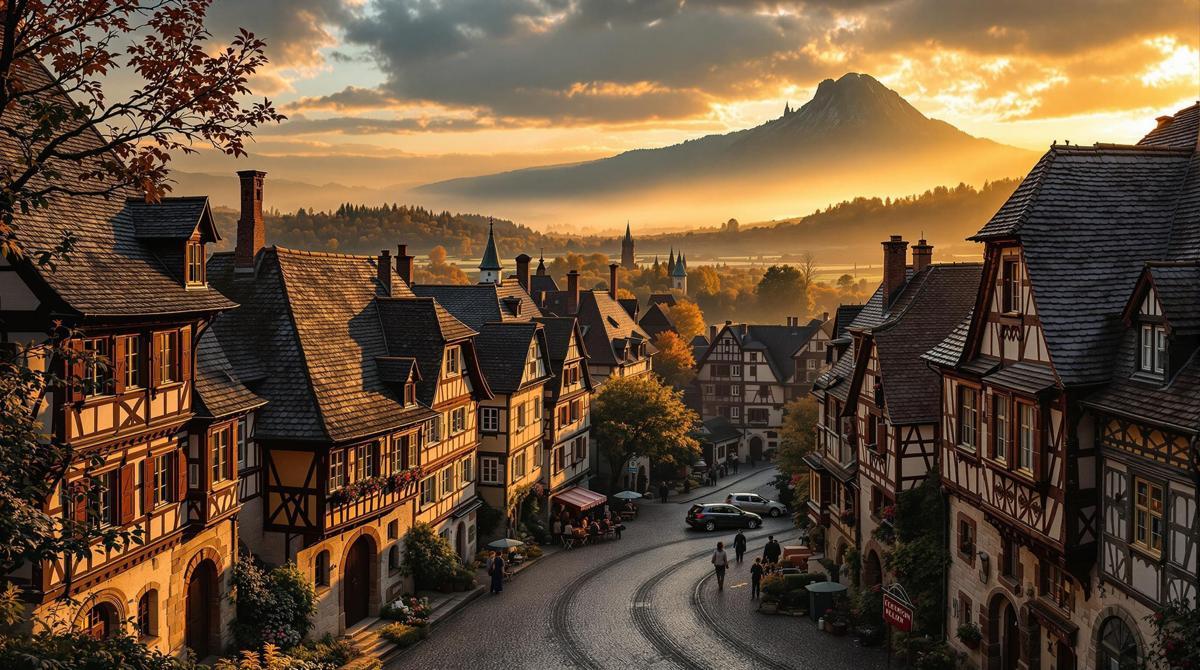Hidden in the gentle hills of Alsace, France, Bouxwiller reveals itself as one of Europe’s most enchanting undiscovered treasures. This medieval gem in the Bas-Rhin department captivates visitors with its timber-framed houses adorned with intricate carvings and colorful facades – yet remarkably, most international travelers have never heard its name.
A timeless medieval wonderland frozen in history
Walking through Bouxwiller’s cobblestone streets feels like stepping directly into a Brothers Grimm fairytale. Half-timbered houses with stunning oriels (bay windows) line narrow lanes that have remained virtually unchanged for centuries. The town served as the administrative center for the counts of Hanau-Lichtenberg, whose influence is visible in every architectural detail.
“Our town preserves something increasingly rare in Europe – authenticity,” shares Marie Keller, local historian. “These streets tell stories dating back to the 14th century when Bouxwiller became a fortified town.”
The mysterious witch mountain that locals still whisper about
Looming over Bouxwiller is the Bastberg hill, a place shrouded in legend and geological significance. Known locally as the “Mountain of Witches,” it was once believed to be a gathering place for witches’ sabbaths. Today, it’s a nature reserve containing rare fossils that tell a much older story – one millions of years in the making.
The hill offers breathtaking panoramic views of the Alsatian countryside that rival Europe’s most pristine natural landscapes, yet without the crowds.
Two museums that capture centuries of forgotten stories
The Musée du Pays de Hanau showcases the region’s rich heritage through interactive exhibits housed in a beautifully restored 18th-century building. Nearby, the Musée Judéo-Alsacien reveals the fascinating history of Jewish communities in Alsace, a cultural narrative often overlooked in European history books.
A culinary journey through Alsatian flavors
Local restaurants serve authentic Alsatian specialties, including the famous tarte flambée (flammekueche) – a thin bread dough topped with crème fraîche, onions, and bacon. The surrounding vineyards produce exquisite wines that perfectly complement these hearty dishes.
“Our cuisine reflects our position between French and German cultures,” explains Jean Muller, a local chef. “It’s robust, flavorful, and meant to be enjoyed slowly, just like our way of life.”
The perfect base for medieval fortress exploration
History enthusiasts will appreciate Bouxwiller’s proximity to other historical sites. The town’s strategic location makes it an ideal base for exploring nearby medieval fortresses and ancient structures throughout the region.
A digital nomad’s secret retreat
With improved connectivity reaching even the most historic corners of Europe, Bouxwiller has quietly become a haven for remote workers seeking inspiration in historical surroundings. The town offers a peaceful alternative to trendy digital nomad destinations, with reliable internet and authentic cultural immersion.
When to visit: The insider’s timing secret
While summer brings pleasant temperatures, early December transforms Bouxwiller with its enchanting Christmas market. The town square glows with twinkling lights, and the scent of mulled wine and cinnamon fills the air, creating a magical atmosphere that rivals more famous markets without the overwhelming crowds.
Bouxwiller represents that increasingly rare European travel experience – a place where authenticity still prevails over commercialization, where local traditions remain vibrant, and where visitors can discover the soul of Alsace away from tourist hordes. Like a living museum without velvet ropes, it invites travelers to not just observe history, but to step directly into it.
